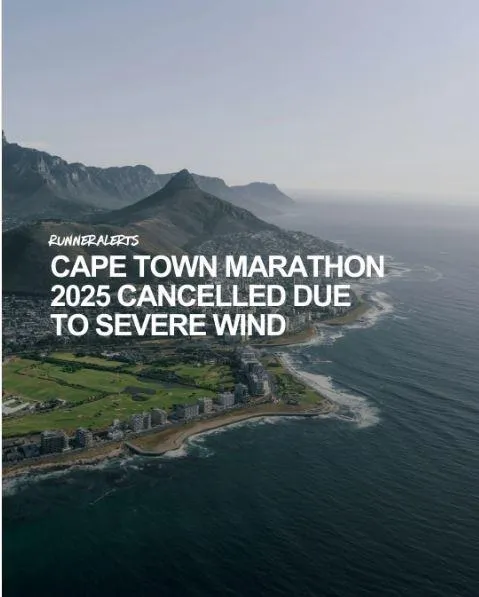When events go wrong: The importance of cancellation insurance

Shortly before its start, organisers of the Sanlam Cape Town Marathon cancelled the event, citing safety concerns owing to high winds.
Image: Instagram
The recent cancellation of the Sanlam Cape Town Marathon due to severe winds has left thousands of runners, spectators, and service providers with questions about refunds and recourse.
This moment highlights the importance of understanding the terms and conditions of ticket purchases and the role of cancellation insurance.
According to Mamoeti Nosi, Product Head: Events at iTOO Special Risks, "As a ticketholder, your first line of protection is the terms and conditions attached to your purchase. These provisions outline what you are entitled to and what you are not."
If an event is cancelled due to circumstances beyond the organiser's control, such as weather or safety concerns, many ticketing platforms and organisers are not legally obligated to refund the cost of the purchased ticket or associated costs like travel or accommodation.
Nosi emphasises the importance of cancellation insurance for event organisers, stating that it protects their financial investment, safeguards their reputation, and ensures they can bounce back next year. "Essentially, if you have built a community around your event, cancellation insurance is how you protect it from financial loss, reputational damage, and the risk of never running again," she says.
The unpredictability of climate change and global uncertainty means that no event is immune to cancellation. Nosi notes that "climate change is shifting historical norms. If this kind of weather has not occurred in this month before, it is time to accept that the climate is changing and policies must evolve accordingly."
A pertinent example of the importance of cancellation insurance is an organiser who paid for it every year for 24 years, and it only triggered once, during the pandemic. Nosi says, "That is the entire point; organisers should not buy insurance because they expect disaster. They should buy it because they understand that resilience requires planning."
More than just entertainment or sporting activities, major events are emotional investments. People train for months, travel across continents and build memories around these moments. When things go wrong,they deserve more than silence; they deserve a plan.
Nosi concludes that cancellation insurance is not a luxury but a necessity for event organisers. "It is the difference between a setback and a shutdown. In today's world, especially, it is the only way to ensure your event and your reputation go the distance."
Related Topics: